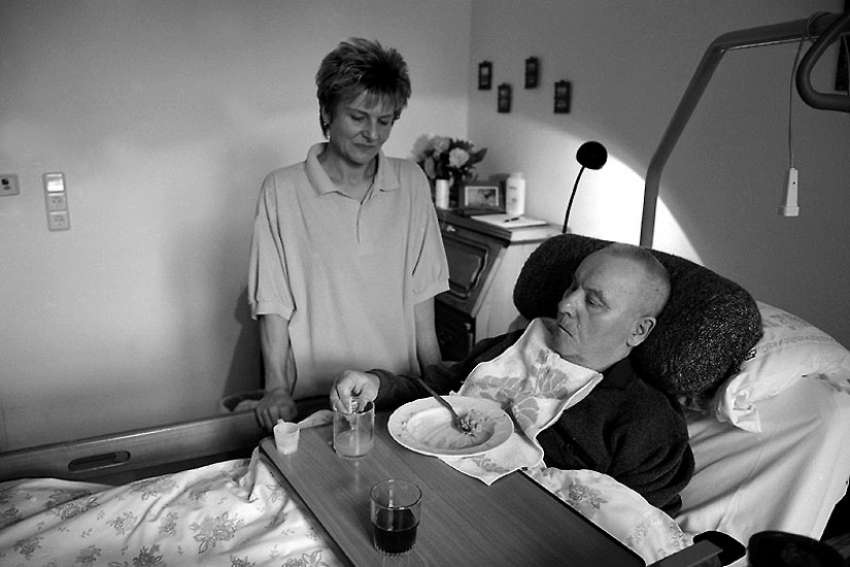In a gruesome distortion of language, it is widely regarded as “mercy” to end some lives, but that mercy is fleeting when it comes to ensuring comprehensive care for people who uphold the dignity of a life nearing its end.
This imbalance will only be corrected when palliative care becomes a cornerstone of Canadian health care. And that will only occur when Ottawa, in lockstep with the provinces and territories, implements a comprehensive national strategy to move palliative care out of the shadow of assisted suicide. Estimates suggest palliative care is unavailable for three-quarters of Canadians.
So we join the Canadian bishops and their interfaith colleagues in applauding a private-member’s bill that calls on the federal minister of health to develop and implement a national blueprint for palliative care. Introduced by Conservative MP Marilyn Gladu, the “Framework on Palliative Care in Canada Act” sets out a plan to bring palliative care to all Canadians in settings as varied as hospitals, long-term care facilities, homes and hospices.
This isn’t the first attempt to elbow government from its slumber on this matter. Two years ago, a motion by NDP MP Charlie Angus to establish a pan-Canadian strategy for palliative and end-of-life care received near-unanimous Commons support. But nothing came of it as the Conservatives limped out of office. Then the Liberals arrived with a promise to invest $3 billion over four years in home care, which included money for palliative care, but that pledge was ignored in the spring budget. So Gladu deserves credit for stepping up with a bill that warrants all-party support and speedy implementation.
Canadians appear to agree with Gladu. A Nanos Research poll shows 59 per cent of respondents would willingly pay more income tax to subsidize home health-care costs for caregivers and palliative care. Almost as many (53 per cent) would agree to increase the national debt if the government was borrowing money to create a national network of home-care services.
Creating that network is overdue. People who qualify and have a willing doctor can receive an assisted suicide anywhere in Canada. The courts call the right to die an individual choice. But it’s a phoney choice if suffering people are denied real options like affordable palliative and hospice care.
A caring society would offset the option of a quick death by lethal injection with the option of a natural death under the compassionate care of trained medical and spiritual caregivers. If there is no going back on assisted killing, Canadians at least deserve the genuine option of palliative care.


